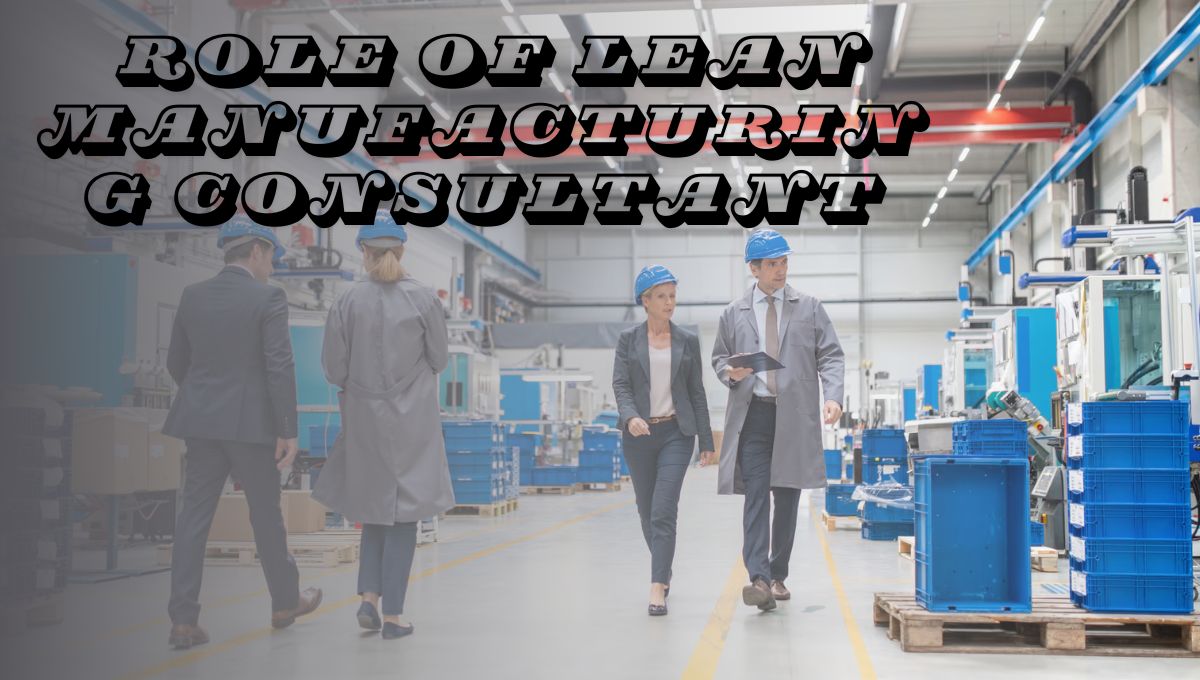
The Role of Lean Manufacturing Consultant in the Automotive Industry
- Oct 09, 2024
- | 14
In today's fast-paced automotive industry, efficiency, quality, and cost-effectiveness are more critical than ever. Companies continuously seek ways to streamline processes, reduce waste, and maximize productivity. This is where a Lean Manufacturing Consultant comes into play. This blog explores the vital role of Lean Manufacturing Consultants in the automotive sector, their methodologies, and the benefits they bring to organizations striving for excellence.
Understanding Lean Manufacturing
Lean manufacturing is a systematic approach designed to optimize operations by reducing waste and improving processes. It originated from the Toyota Production System (TPS) and emphasizes value creation by minimizing non-value-added activities. In the automotive sector, where competition is fierce, and consumer demands are high, implementing lean principles can lead to significant improvements.
Principles of Lean Manufacturing
- Value: Identifying what constitutes value from the customer’s perspective.
- Value Stream: Mapping the entire process to assess which steps add value and which do not.
- Flow: Ensuring that the production process flows smoothly without interruptions.
- Pull: Producing only what is needed when it is needed, based on customer demand.
- Perfection: Continuous improvement of processes, products, and services.
The Role of Lean Manufacturing Consultants
Lean Manufacturing Consultants play a crucial role in the automotive industry, serving as advisers, trainers, and facilitators. Their primary functions include:
1. Assessment and Analysis
A Lean Manufacturing Consultant begins with a comprehensive assessment of current manufacturing processes. They analyze production flows, inventory levels, and overall operational efficiency. This initial evaluation helps identify inefficiencies, bottlenecks, and areas for improvement.
Tools Used in Evaluation
- Value Stream Mapping (VSM): A visual tool that shows the flow of materials and information.
- Process Flow Diagrams: Illustrates the steps in a production process, highlighting areas for enhancement.
- Time Studies: Measure the time taken for each step in the process to identify delays.
2. Developing a Lean Strategy
After analyzing the current processes, the consultant works on crafting a tailored lean strategy. This strategy should address specific challenges faced by the company while aligning with its objectives. The consultant collaborates with the management team to establish key performance indicators (KPIs) to measure success.
3. Implementing Lean Initiatives
Once a strategy is in place, the consultant aids in implementing various lean initiatives. Some of the common initiatives in the automotive sector include:
- 5S Methodology: A workplace organization method that emphasizes Sort, Set in order, Shine, Standardize, and Sustain.
- Kanban System: A scheduling system that helps control logistical chains and inventory levels.
- Kaizen Events: Focused improvement workshops that aim for quick wins and foster a culture of continuous improvement.
4. Training and Development
Equipping employees with the right tools and knowledge is vital for successful lean implementation. Lean Manufacturing Consultants conduct training sessions to educate employees on lean principles, concepts, and tools. Empowering staff ensures that everyone is engaged in the continuous improvement process.
5. Monitoring and Evaluation
Lean is not a one-time event but an ongoing journey. Consultants regularly monitor the implemented strategies and evaluate their effectiveness. They conduct routine audits and assessments to determine if the changes are yielding the desired results.
6. Fostering Continuous Improvement
A Lean Manufacturing Consultant instills a culture of continuous improvement within the organization. They encourage employees to identify problems, suggest solutions, and take ownership of their work areas. This proactive approach fosters innovation and commitment to excellence.
Benefits of Hiring a Lean Manufacturing Consultant
Organizations in the automotive sector can experience significant benefits by engaging Lean Manufacturing Consultants. Here are some key advantages:
1. Increased Efficiency
Lean principles focus on optimizing processes, leading to improved efficiency. With reduced wasted time and resources, automotive companies can enhance their production efficiency.
2. Cost Savings
By identifying and eliminating waste across various processes, a lean approach often translates into considerable cost savings. These savings can also be redirected towards research and development or enhancing product quality.
3. Improved Quality
Lean methods emphasize quality at every stage of the production process. By reducing defects and errors, automotive companies can produce vehicles that meet or exceed customer expectations.
4. Enhanced Customer Satisfaction
With improved efficiency, cost savings, and higher quality products, customer satisfaction naturally increases. Lean practices enable manufacturers to respond more effectively to customer demands, leading to higher sales and brand loyalty.
5. Employee Engagement
When employees are involved in the lean process, they feel empowered and valued. This engagement can lead to higher morale and job satisfaction, ultimately decreasing turnover rates.
Case Studies: Lean Implementation in the Automotive Industry
Real-world examples highlight the effectiveness of lean methodologies:
Case Study 1: Toyota
Toyota is often cited as a pioneer in lean manufacturing, developing the Toyota Production System (TPS). By meticulously mapping processes and implementing just-in-time inventory systems, Toyota significantly improved production efficiency and product quality. Their success story showcases how lean principles can lead to industry leadership.
Case Study 2: Ford Motor Company
Ford implemented lean principles in response to challenges faced in their production processes. For instance, they adopted the 5S methodology, resulting in organized workstations and improved safety. The transition towards lean resulted in shorter production cycles and improved overall efficiency.
Conclusion
The role of a Lean Manufacturing Consultant extends far beyond traditional consulting. These experts are change agents, mentoring teams in the automotive sector to embrace lean principles. Through assessment, strategy development, training, and continuous improvement initiatives, they optimize operations, reduce waste, and enhance quality.
As the automotive industry continues to evolve amidst increasing competition and consumer demand for quality, the importance of these consultants cannot be overstated. Companies willing to invest in lean manufacturing consultants will not only see immediate benefits but are also more likely to thrive in the long run.
Lean consulting offers an avenue for automotive companies to transform their operations and emerge as industry leaders. By focusing on sustainable practices and instilling a culture of continuous improvement, lean manufacturing consultants help automotive businesses achieve new heights.
If you are part of the automotive industry and are looking for ways to enhance your processes, reduce costs and improve quality, consider contacting a lean manufacturing consultant. Or click the link below to learn more: https://www.ribcon.com/

1.jpg)

1.jpg)
